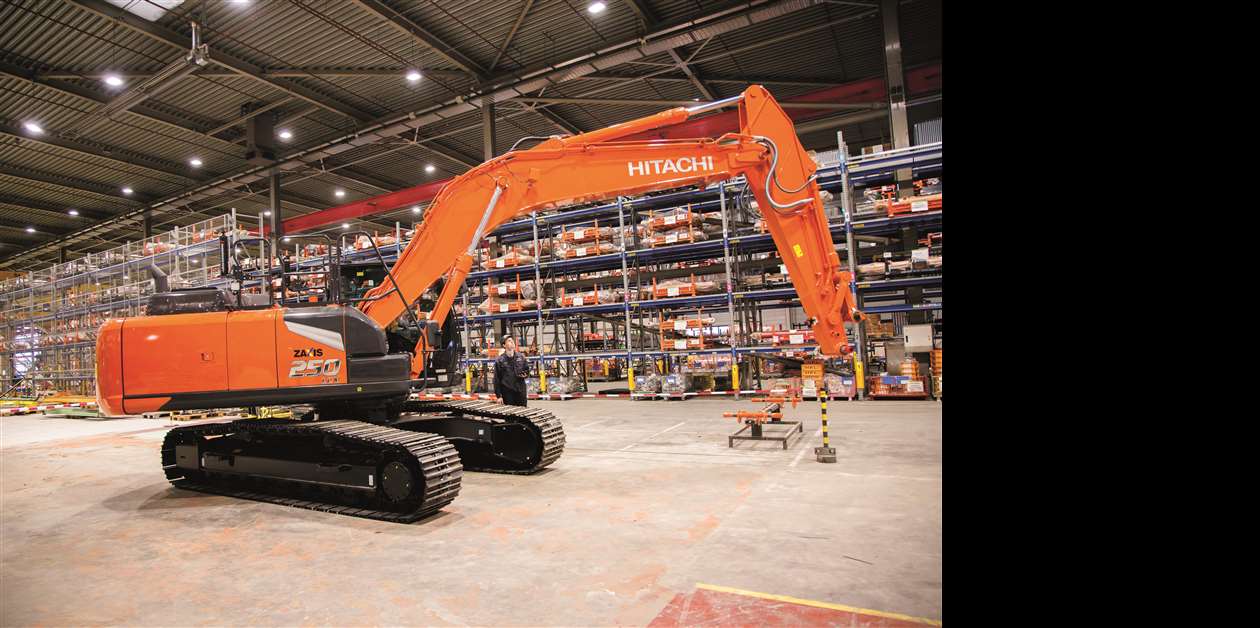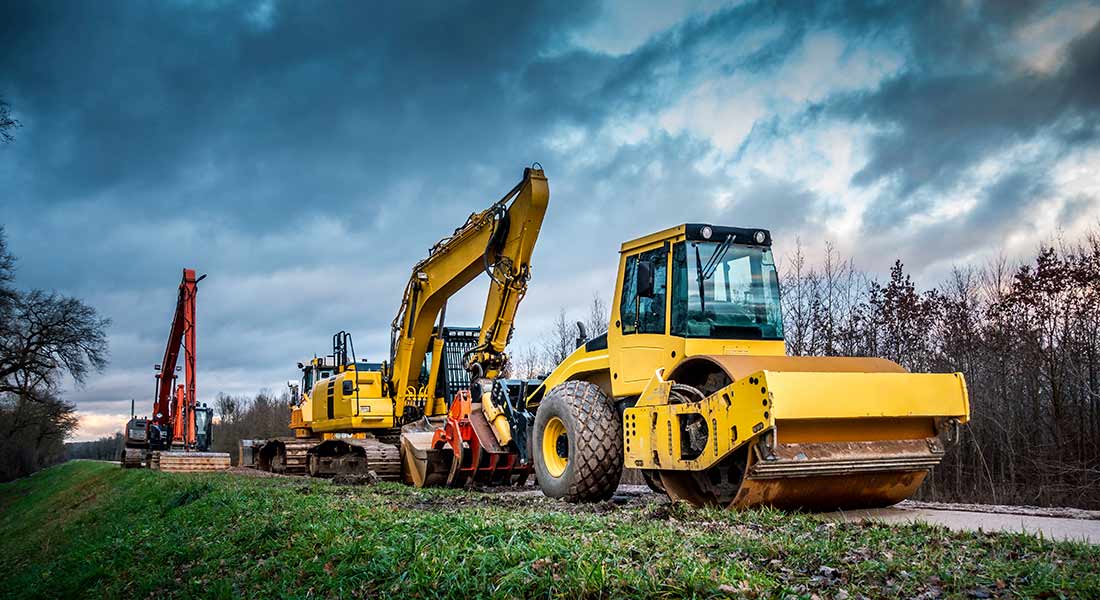Equipment Rental Company in Tuscaloosa, AL: Your Trusted Resource for Machinery
Equipment Rental Company in Tuscaloosa, AL: Your Trusted Resource for Machinery
Blog Article
Checking Out the Financial Conveniences of Renting Construction Devices Contrasted to Having It Long-Term
The decision between owning and leasing building devices is essential for economic administration in the sector. Renting out deals instant price savings and operational versatility, allowing business to allot sources more efficiently. Understanding these nuances is necessary, specifically when thinking about just how they line up with particular project needs and financial strategies.

Price Contrast: Renting Vs. Having
When assessing the economic ramifications of renting out versus owning building devices, a comprehensive price comparison is vital for making educated decisions. The selection in between owning and renting can significantly affect a business's bottom line, and recognizing the associated expenses is vital.
Renting out building and construction equipment commonly involves reduced ahead of time prices, allowing businesses to assign resources to various other operational needs. Rental prices can accumulate over time, possibly exceeding the cost of possession if tools is needed for an extensive duration.
On the other hand, possessing building equipment calls for a considerable preliminary investment, together with ongoing expenses such as depreciation, funding, and insurance. While ownership can bring about lasting financial savings, it likewise binds capital and may not provide the very same level of adaptability as leasing. Additionally, having tools necessitates a dedication to its usage, which may not constantly straighten with project needs.
Inevitably, the decision to rent or possess should be based on a detailed evaluation of details project demands, economic capacity, and long-lasting tactical goals.

Maintenance Expenditures and Obligations
The option in between owning and renting out building tools not just includes economic considerations yet additionally encompasses ongoing upkeep expenditures and obligations. Possessing tools calls for a significant dedication to its maintenance, which consists of routine inspections, repair services, and possible upgrades. These obligations can promptly build up, resulting in unexpected expenses that can stress a spending plan.
On the other hand, when leasing equipment, upkeep is normally the obligation of the rental business. This setup permits specialists to stay clear of the economic worry related to wear and tear, as well as the logistical obstacles of organizing repair services. Rental arrangements usually include stipulations for upkeep, suggesting that contractors can concentrate on finishing tasks as opposed to fretting about equipment condition.
Additionally, the varied variety of devices available for rent makes it possible for companies to choose the latest designs with advanced modern technology, which can improve efficiency and performance - scissor lift rental in Tuscaloosa, AL. By choosing for services, organizations can prevent the long-lasting obligation of tools devaluation and the connected upkeep headaches. Eventually, examining upkeep expenses and responsibilities is crucial for making an informed choice concerning whether to lease or have building and construction equipment, substantially impacting total task costs and operational performance

Depreciation Influence On Possession

A substantial factor to take into consideration in the decision to own construction tools is the influence of depreciation on overall possession expenses. Devaluation stands for the decrease in value of the devices gradually, affected by factors such as usage, deterioration, and advancements in innovation. As tools ages, its market price lessens, which can substantially affect the proprietor's economic placement when it comes time to market or trade the devices.
For building browse around this site and construction companies, this depreciation can translate to significant losses if the equipment is not made use of to its fullest possibility or if it lapses. Proprietors should represent depreciation in their monetary estimates, which can result in higher total expenses compared to leasing. Furthermore, the tax ramifications of devaluation can be complicated; while it might supply some tax obligation benefits, these are frequently balanced out by the truth of minimized resale value.
Inevitably, the worry of devaluation highlights the importance of recognizing the long-term economic dedication associated with possessing construction devices. Business must very carefully examine how usually they will make use of the devices and the potential financial impact of depreciation to make an informed decision concerning possession versus renting.
Monetary Versatility of Leasing
Renting building and construction equipment provides significant economic versatility, permitting companies to allocate resources extra successfully. This versatility is especially important in a market characterized by varying task needs and varying work. By opting to rent out, companies can avoid the considerable funding investment required for buying tools, protecting cash money circulation for other operational demands.
Furthermore, renting out equipment allows firms to tailor their devices selections to particular job requirements without the long-term dedication linked with ownership. This means that companies can easily scale their devices supply up or down based on current and expected project requirements. As a result, this versatility reduces the threat of over-investment in machinery that may come to be underutilized or out-of-date in time.
Another economic advantage of leasing is the potential for tax benefits. Rental settlements are commonly thought about operating costs, enabling instant tax obligation deductions, unlike devaluation on owned equipment, which is spread over a number of years. scissor lift rental in Tuscaloosa, AL. This prompt expense recognition can better enhance a company's cash money position
Long-Term Task Factors To Consider
When reviewing the long-lasting needs of a building and construction try this organization, the choice in between having and renting tools comes to be more intricate. Secret aspects to think about include project duration, frequency of usage, and the nature of upcoming tasks. For jobs with extensive timelines, purchasing tools might seem helpful because of the possibility for lower total expenses. Nonetheless, if the equipment will not be used continually throughout projects, having might lead to underutilization and unneeded expense on upkeep, insurance, and storage.
In addition, technical innovations present a significant consideration. Full Report The building industry is advancing quickly, with new tools offering boosted efficiency and safety features. Leasing enables firms to access the most up to date technology without dedicating to the high ahead of time costs associated with getting. This flexibility is especially useful for companies that take care of diverse jobs calling for various kinds of equipment.
Furthermore, financial security plays an important duty. Having devices frequently entails substantial funding financial investment and devaluation problems, while renting enables for more predictable budgeting and capital. Inevitably, the option in between having and leasing should be straightened with the strategic objectives of the construction business, taking into consideration both current and expected task demands.
Conclusion
In conclusion, renting building devices supplies substantial financial benefits over lasting possession. Inevitably, the choice to rent rather than very own aligns with the vibrant nature of building and construction projects, enabling for versatility and accessibility to the latest equipment without the economic worries associated with ownership.
As equipment ages, its market worth diminishes, which can substantially affect the proprietor's financial position when it comes time to trade the devices or market.
Renting out construction devices provides significant monetary flexibility, enabling business to allocate sources a lot more efficiently.Additionally, renting devices makes it possible for companies to customize their tools choices to certain project demands without the long-term dedication linked with possession.In final thought, leasing construction equipment uses significant monetary benefits over long-lasting possession. Ultimately, the decision to rent out instead than own aligns with the dynamic nature of building and construction projects, enabling for versatility and access to the newest devices without the monetary worries linked with ownership.
Report this page